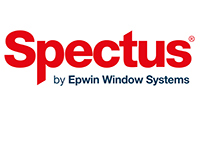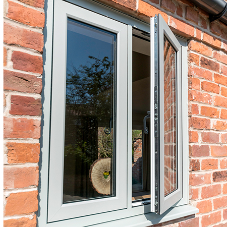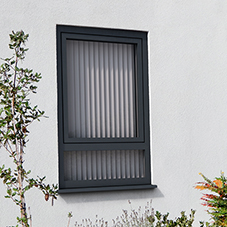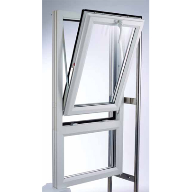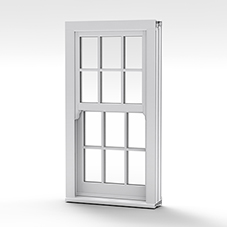Replacement windows remain one of the most effective ways to take a fabric-first approach to improving the energy efficiency and sustainability of the UK’s housing stock.
For specifiers and architects working on social housing and retrofit projects, choosing the right window system can make a significant difference, not just in performance, but in
the long term sustainability of the built environment.
Why Windows Matter for Sustainability
Windows are far more than an aesthetic choice; they are integral to a building’s overall thermal and structural performance. Around 18% of a building’s heat loss occurs through
its windows, making them a crucial factor in achieving energy targets and occupant comfort.
However, not all windows are created equal. The sustainability credentials of a window system depend on its design, materials and fabrication process. Specifiers need to look
beyond U-values to consider factors such as recyclability, embodied carbon, durability, and ease of maintenance. Selecting high-performance window systems built for the
future ensures compliance with tightening regulations and supports a lower whole-life carbon footprint.
Decarbonising Social Housing
The need for sustainable window solutions is perhaps most evident in the social housing sector. Nearly 80% of social housing professionals report that some of their tenants are
fuel poor. Improving the thermal efficiency of homes directly reduces energy bills and alleviates fuel poverty, while also helping housing providers meet their decarbonisation
targets.
Domestic fossil fuel use accounts for around 21% of England’s carbon emissions, with social housing representing a significant share. Decarbonising the sector is therefore an
essential part of achieving Net Zero.
A fabric-first approach remains the most logical starting point. By improving insulation and upgrading windows and doors, heating systems don’t need to work as hard, reducing
emissions and operational costs. The result is a triple win – lower carbon, warmer homes and reduced bills.
Retrofit projects are leading this transformation. The rise in whole-fabric energy efficiency initiatives demonstrates the industry’s commitment to upgrading existing
housing stock responsibly. Programmes guided by standards such as PAS 2030:2023 are helping ensure installations are carried out consistently and effectively.
Working with suppliers and installation partners that hold PAS 2030 accreditation provides reassurance that systems are designed, fabricated and installed in line with best
practice. Many of Epwin Window Systems’ Approved Commercial Partners hold this accreditation, helping ensure projects deliver the greatest possible return on investment.
Collaboration is Key
Delivering sustainable building performance requires strong collaboration between specifiers, contractors and product manufacturers. Early engagement with experienced
suppliers can streamline the specification process, minimise design risk and ensure that every product contributes effectively to sustainability targets.
At Epwin Window Systems, collaboration with specifiers is at the heart of our approach.
With over 50 years’ experience in the commercial sector, we provide a full range of PVCU and aluminium window and door systems suitable for every project type, from high-volume retrofit schemes to bespoke architectural developments.
Our extensive portfolio includes Profile 22, the UK’s most widely specified PVC-U system; Spectus, a trusted PVC-U system installed in millions of properties across the UK; and Stellar, our multi-award-winning aluminium system known for its innovative design and market-leading energy performance. Every system we supply complies with Part L of the Building Regulations as standard, and many exceed it, giving specifiers confidence that their designs meet or surpass thermal efficiency requirements.
Sustainability at the Core
Epwin Window Systems is proud to be leading the way in sustainable manufacturing. We were the first UK systems house to achieve the VinylPlus® Product Label, the only
sustainability scheme for PVC recognised by BREEAM.
Our closed-loop recycling process ensures that old PVC-U window frames are collected, processed and reintroduced into new profiles. We’ve incorporated recycled materials into our manufacturing since 2009, demonstrating our long-term commitment to responsible resource management and reduced environmental impact.
This sustainable ethos extends across the Epwin Group, which offers a comprehensive range of building materials including soffits, fascias, guttering, decking, windows and doors. For specifiers, this provides the reassurance of a one-stop solution with consistent quality, shared values and integrated sustainability credentials across the product range.
Support at Every Stage
Every commercial project we support is assigned a dedicated Specification Manager who provides expert technical guidance, from early-stage design advice to on-site support. We
supply detailed drawings, performance calculations and compliance documentation, ensuring your specification journey is seamless and fully supported.
Our hands-on approach extends to the installation phase through our network of Approved Commercial Partners. These companies meet stringent quality and compliance standards and hold relevant accreditations such as Constructionline and EXOR. Their experience ensures installations run smoothly, meet regulatory requirements and deliver long-term performance.
Building a Sustainable Future Together
Windows are a vital component of any sustainable building strategy. They influence not only energy efficiency but also occupant wellbeing, comfort and the long-term environmental footprint of a property.
By choosing to partner with Epwin Window Systems, specifiers gain access to more than just high-performance products, they gain the support of an experienced team committed to sustainability, technical excellence and project success.
Together, we can deliver buildings that perform today and protect tomorrow.
The Role of Sustainable Windows in Building
| T | 01952 283377 |
|---|---|
| E | commercial@epwin.co.uk |
| W | Visit Spectus Window Systems's website |
| Stafford Park 6, Telford, Shropshire, TF3 3AT |
Products by this Company


